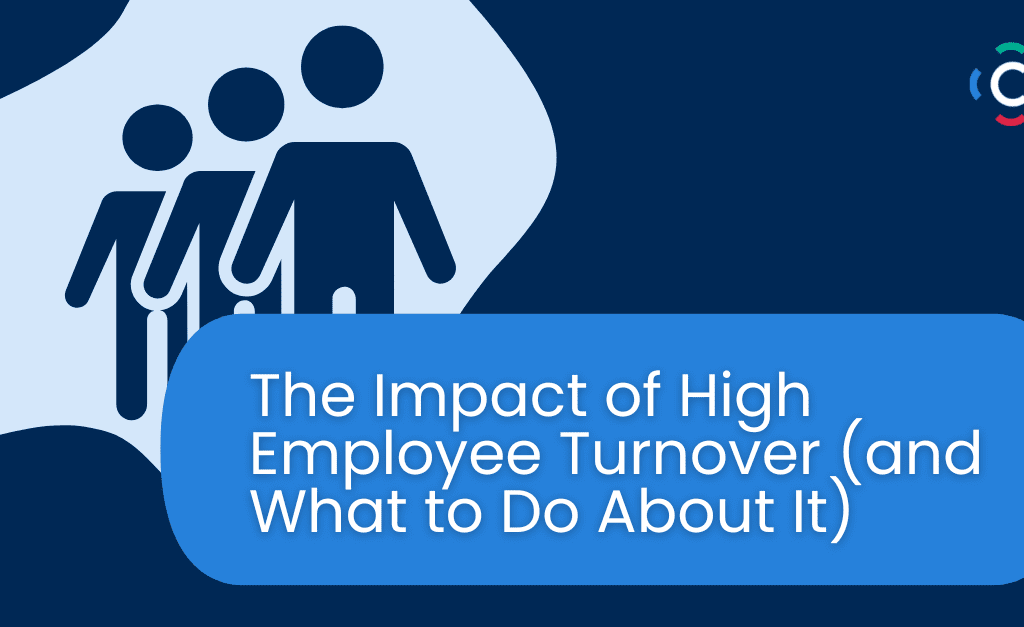Why new hires fail? It’s quite common. In fact, one in four new hires leave before their second year on the job. Here are some of the reasons why.
We’ve talked before about ways accounting and finance candidates can help themselves nail that ever-critical first month at a new job. But for every candidate who passes their probationary period with flying colours, there are just as many who struggle to find their footing at their new digs. As such, even the most promising new accounting or finance opportunity can end badly. Indeed, according to a recent Allied Workforce Mobility survey, 25% of all new hires leave their company within a year. Turnover, furthermore, is costly: the same study determined that the average cost of filling a new position was $11,000.
Why New Hires Fail
In such cases, it’s tempting to point the finger at the employee for not learning the ropes or adapting to their new environment. But the fault doesn’t always lie with the new hire; there’s usually plenty of blame to go around. Inexperience on the part of a hiring manager or supervisor, along with poor onboarding programs, can often contribute to a new hire’s struggles.
But if both candidates and employers are cognizant of the kinds of things that contribute to a new hire failing in their position, they can both learn to prevent repeating the same mistakes.
Interpersonal issues
Many candidates will be surprised (or perhaps relieved) to hear that a lack of technical skills is not the main reason why new hires fail. That’s according to Steve McKinney, president of the executive recruitment firm McKinney Consulting.
The facts support this conclusion. A three-year study of 5247 hiring managers from 312 organizations across various sectors, published by global training and research company Leadership IQ, found that poor interpersonal skills crowned the list of reasons new hires fail, far surpassing issues with technical skills. The study also found that:
- 26% of new hires surveyed failed due to not being able to accept feedback
- 23% because they couldn’t process or manage emotions
- 17% due to a lack of motivation
- 15% because they had the “wrong temperament for the job”
- 11% because they lacked the requisite technical skills for the job.
Inexperience on the part of a hiring manager or supervisor, along with poor onboarding programs, can often contribute to a new hire’s struggles.
Clearly, mastering your attitude, temperament, and emotional control is half the battle in succeeding at a new position. That insufficient technical savvy falls so low on this list of reasons for failure should come as good news for new hires, many of whom often feel underqualified for their new jobs. But this may also be a cold comfort. After all, developing seriously strong, effective interpersonal skills is no easy feat. Learning to optimize interpersonal skills in a work environment can require a great deal of introspection, discipline, and basic trial and error.
On the other side of the table, hiring managers often make the mistake of overlooking things like a candidate’s temperament or emotional intelligence during the hiring process. This can lead them to choose someone who isn’t the right fit for their company.
But if you, as a candidate, are committed to improving your interpersonal dealings – through increased self-awareness, mentorship, and training and professional development courses – you are far likelier to succeed in a new position.
An inability to accept feedback
It’s important to seek out and embrace feedback at work – to ensure that you aren’t your own worst enemy when you’re being coached. This particularly applies to newly hired employees. A new candidate must constantly be in learning mode: she needs to be curious, open, willing to ask questions, and up for accepting feedback when a deliverable doesn’t line up with a supervisor’s expectations. No one’s giving you feedback? Ask for it.
When you receive constructive criticism, make sure that you don’t become resistant, defensive, or obstinate. If you become emotional and lash out when you are given feedback, or if you fail to heed it, your higher-ups may peg you as someone who’s not interested. Being offered feedback when you’re floundering is like being thrown a life preserver. If you’re not interested in improving, your employer might very well be content to let you drown.
Learning to optimize interpersonal skills in a work environment can require a great deal of introspection, discipline, and basic trial and error.
Showing up with the wrong expectations
Too often, a job description will lay out the requirements for a position and the skills that applicants should possess, but will neglect to outline the factors critical for a hire’s long-term success. As such, you might have a superficial sense of what’s expected of you. But unless you dig deeper, you won’t know what deliverables or milestones the employer is expecting you to reach.
If the job description is silent on this score, it’s up to you, as the candidate, to bring this up during the interview. Be sure to ask the employer what they’d like to see in terms of key deliverables in your first year on the job.
In the event that you do get the position, remember to restate these questions early on, so that your work is in line with your employer’s expectations every step of the way.
Confusing corporate vision with team dynamics
A lot has been said about the importance of an employee fitting in with their new company’s corporate culture. Unfortunately, the very term “corporate culture” can be rather vague. Some assume that it simply refers to the company’s goals, mission, or vision, along with management’s desire for it to be perceived in a certain way.
While a new employee should familiarize themselves with the corporate vision of their new organization, they shouldn’t overlook the other elements of a company’s culture. In particular, the dynamics of their team and the habits or mores of their coworkers will be decisive for their ability to acclimate to their new environs.
Thus, during the interview, it’s important for candidates to inquire into how the team operates. What is the natural working style of the team? If you have a problem, to whom should you turn? Questions like these will help clarify what’s expected of you and whether you will prove compatible with your fellow staff and supervisors.
All in all, finding your groove in a new company and overcoming the inevitable challenges of being the “new guy” or “gal” can be extremely tough. A lot is asked of you, but by coming in with a positive attitude, appropriate expectations, and an openness to coaching and self-improvement, you should be just fine.
Let us know what you think! At Clarity Recruitment, we’re always interested in hearing from accounting and finance professionals like yourselves, who are ready for new, exciting opportunities that can take their careers to the next level. And be sure to follow us on LinkedIn for more great tips and advice!




